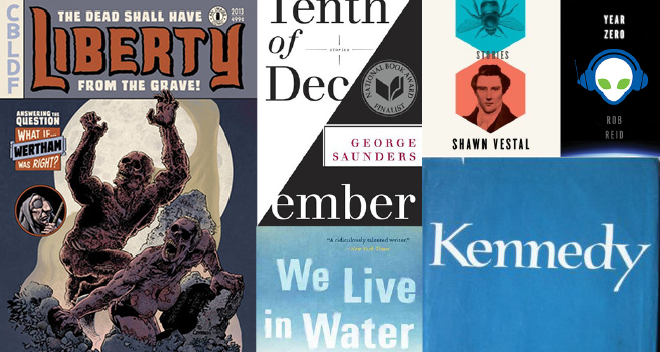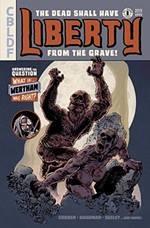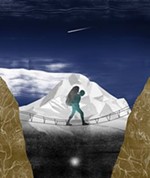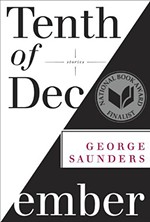Monday, December 9, 2013
What We've Been... reading
Each week we print For Your Consideration, a feature where we take turns telling you about worthwhile stuff we’ve been reading, watching, listening to, etc. Now we’re starting a new web-only feature that’s kind of the inverse: Each week we have a single topic with recommendations from several Inlander staffers. Feel free to add your own in the comments.
The first week: what we've been reading.
In what’s old news to those who follow the local writing scene, Spokane’s own Shawn Vestal and Jess Walter each released short story collections this year. I spent my recent vacation with the pair: Vestal’s Godforsaken Idaho (set mostly under the hot sun of the southern half of the gem state) and Walter’s We Live in Water (with stories in West Central and at the corner of Third and Division). Both shine with uniquely Northwestern scenes and tales of imperfection. Full of damned and broken characters, the stories are mostly those of disappointment and struggle, but many also manage some spark of light or humor. Perfect for the holiday season.
— HEIDI GROOVER
First, an admission. I’m not a comic book/graphic novel person. I can appreciate the skill that goes into the medium; I just didn’t grow up on comics. But that’s the thing about the Comic Book Legal Defense Fund’s 2013 Liberty Annual: just about anyone can get into it. With stories of issues ranging from censorship to copyright, the book and its stunning artwork create a snapshot of the state of free expression in our world today. (Hint: it’s not as free as you might think.) And, in a particular call on Spokane to be more outraged, the death of Otto Zehm is included in a story by contributor Leah Sottile (who also freelances for the Inlander), “Punk Rock is Out to Lunch.” Final sell: it’s only $5.
— HEIDI GROOVER
I’ve made a point to read anything in the New Yorker by Ariel Levy since this entertaining-and-damning piece about Silvio Berlusconi and Italy’s macho culture, which includes some brilliant first-person moments. So I went out of my way, downloading it on crappy hotel wifi, when I saw she had a new story last week — “Thanksgiving in Mongolia,” a personal essay about her terrifying miscarriage while on assignment. It’s as brutal and heart-wrenching as it sounds. A lot has been written about the story since, drawing connections and welcoming it into the sometimes contradictory canon of personal writing on motherhood, miscarriage, abortion and feminism. But the piece stands alone. It’s meant to stand alone.
— LISA WAANANEN
So it turns out, all these years, our pop songs, our indie classics, our commercial jingles have been broadcast far, far out into the reaches space, where countless powerful alien civilizations have been listening.
And they absolutely love it. Planet Earth, apparently, has a good beat and you can dance to it. That’s the good news, copyright attorney Nick Carter (no relation to the boy band singer) learns in the novel Year Zero.
The bad news is that, having listened to the sum total of the earth’s musical output many, many times, and not paying a cent, these alien civilizations have realized they owe a vast array of studios an impossible amount of money. Not wanting to risk the wrath of the RIAA’s legal team, various alien forces have decided the only logical choice to cancel that debt is to destroy planet earth. The resulting novel is a little bit like Hitchhiker’s Guide to the Galaxy, if Hitchhiker’s Guide had anything resembling a plot. Year Zero gets weighed down a bit toward with the end with the compounding pile of fictional concepts and invented words, but the novel, so far, remains very funny throughout (1).
(1) Particularly the footnotes.
— DANIEL WALTERS
My reaction to the 50th anniversary of JFK's assassination was to revisit Kennedy, Ted Sorensen's biography published a little more than a year after that horrific day in Dallas. Best known as JFK's speechwriter — the man who composed the memorable phrases we associate with our 35th President — Sorensen, a shy, cerebral, buttoned-down Unitarian from Nebraska, was in many ways the anti-Kennedy. It's the perspective of a young man: He wrote the book in his mid-30s (he died three years ago at 82), and the wounds are fresh, the blood not yet dry, the innocence lost forever. It's far from a tell-all in a 21st-century sense; Sorensen, close friend and advisor, confidant and defender, was just 24 when he first worked for the newly elected Massachusetts senator, and what he reveals of JFK's 46½ years and his administration's thousand-plus days is as much about protecting his boss and mentor's reputation and place in history as about revealing anything new. Sorensen's view is unique, his access unparalleled; for 11 years, he was there for everything, a witness to critical moments in history. JFK hoped he and his friend eventually would write this book together; nothing pained Sorensen more than having to write it alone.
— MICHAEL MAHONEY
Lots of publications have started putting out their best books of the year lists. So I first took note of George Saunders' Tenth of December when it made the New York Times Book Review's "100 Notable Books of 2013." But I finally had to check out a copy once I saw it also made the New York Times "10 Best Books of 2013." It has not disappointed. I'm about halfway through this book of 10 short stories and each tale has its own strange energy with bizarre concepts pitting morals against expectations. Prisoners undergo forced chemical experiments. Children fight off a kidnapper. Many of the stories bloom from fairly dark seeds, but shift to reveal surprising shades of humanity. I'm looking forward to the rest of the book, which also made the cut on this handy "Best Books" app from NPR.
— JACOB JONES
Tags: What We've Been... , Culture , Arts & Culture , Image



























